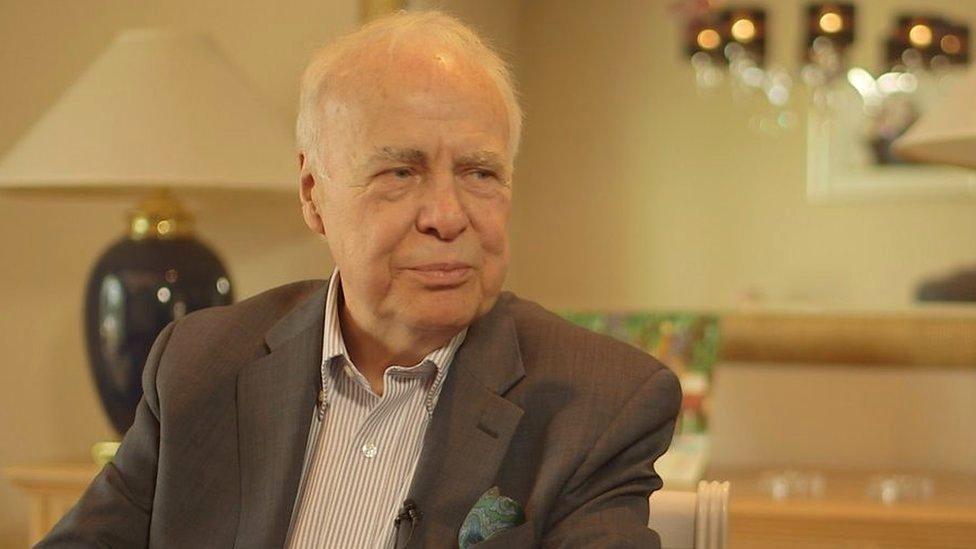The brothers who wrote their way to fame
- Published
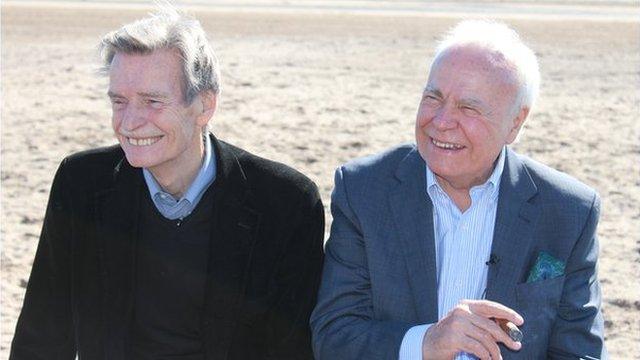
William and Hugh McIlvanney both became successful writers
When Hugh and William McIlvanney were born in Kilmarnock in the 1930s it seemed very unlikely they would become two of Scotland's most-celebrated writers.
Hugh, who has just died at the age of 84, went on to be one of Britain's greatest sports journalists.
And William, the youngest of the four McIlvanney brothers, became known as "the father of tartan noir" and was spoken of as a major influence on Scottish writers such as Ian Rankin and Val McDermid.
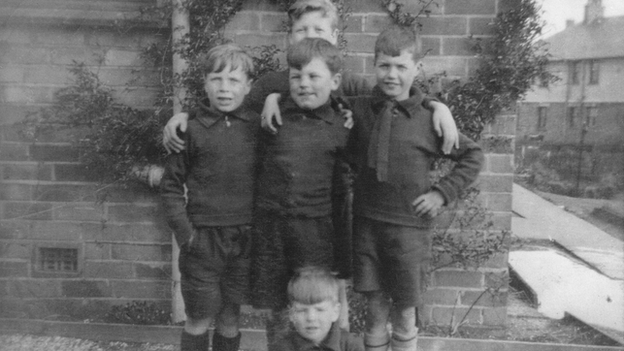
William McIlvanney was the youngest of four brothers
Shortly before William's death in 2015, the brothers spoke about their childhood in a BBC documentary.
They said their father had experienced an extremely tough and poor upbringing, working as a miner in the Ayrshire pits from the age of 14.
It was their mother, an "avid reader", who nurtured their love of words.
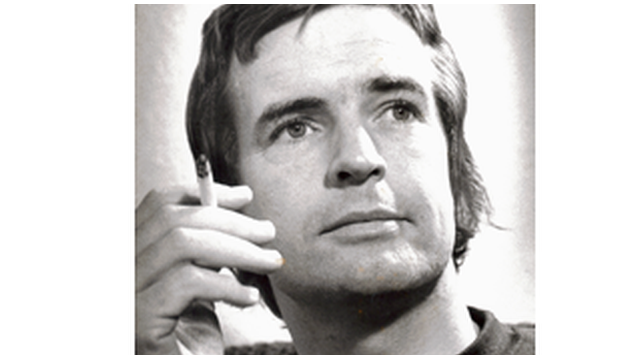
William McIlvanney spent many years as a teacher in Ayrshire
William said: "It was a triumph of my mother's civilising influence."
Hugh said: "She had a huge influence because she was quite literate and she liked to read but it was the encouragement that was always there.
"My father always said 'try to get a job where you don't have to take your jacket off'."
The pair said they were constantly getting into mischief as children but nothing serious enough for the police to be involved.
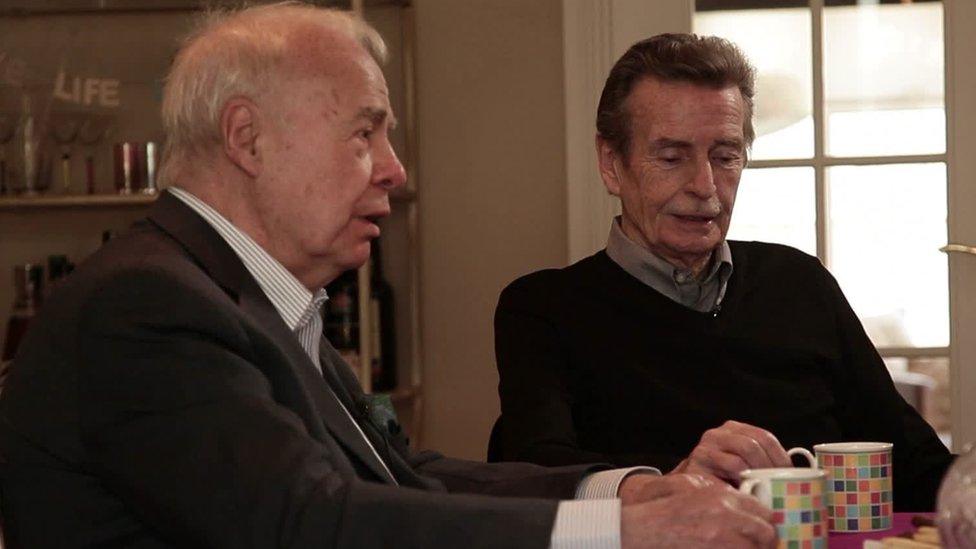
Hugh, who was two years older than William, complained that his younger brother was always dealt with more leniently than him.
Looking back they said they had a warm and stable family home.
William said his father did not understand his literate leanings but was always tolerant.
He said: "I remember at 14 sitting at a pull-out table in the living room writing what I decided was a poem.
"He said 'what you doing son?'. I said 'I'm writing a poem'.
"He just said 'aye, ok' but I bet he was thinking 'my god, what have we come to'?"
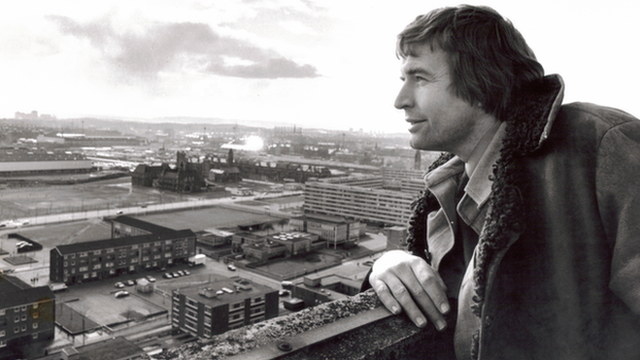
William McIlvanney said Glasgow was a great city to write about
Hugh said: "That feeling you had of being constantly within warmth and within protection was one of the greatest gifts.
"One of my mother's favourite sayings was 'we are better off than better folk'."
Both Hugh and William went to Kilmarnock Academy.
The older brother then became a reporter on the local newspaper before moving on to the Scottish Daily Express, The Scotsman and The Observer.
He spent 30 years at the Observer from 1963, forging close working and personal relationships with top sporting figures such as Jock Stein, Sir Matt Busby, Bill Shankly and Sir Alex Ferguson.
When Sir Alex was writing his autobiography, Managing My Life, he turned to Hugh McIlvanney for help.
Hugh said his greatest scoop was finding himself being invited into Muhammad Ali's villa just hours after he had had regained the world heavyweight title from George Foreman in the epic Rumble in the Jungle showdown in Zaire in 1974.
But he also had to write about tragic events, including the death of his friend Stein, after the World Cup qualifying game in Cardiff.
He was also in Munich in 1972 to report on the Olympic Games when 11 Israeli athletes were murdered by a terror group and reported on the Hillsborough disaster in 1989.
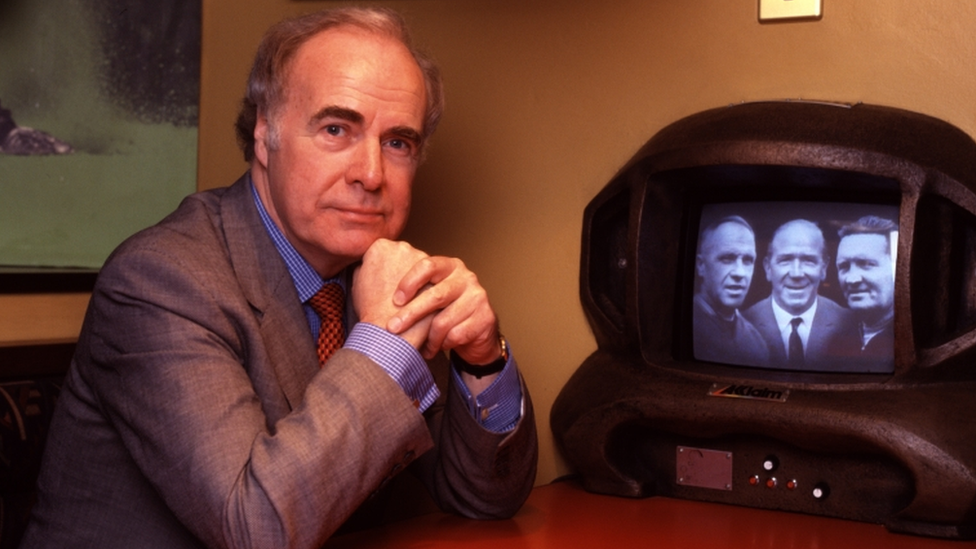
Hugh McIlvanney retired in 2016 after 60 years as a journalist
William McIlvanney went to Glasgow University in 1955 and left in 1959 "transformed" and with a desire to be a writer.
However, he spent most of the next two decades as a teacher at an Ayrshire high school before he pursued writing full time.
His first novel, Remedy is None, came out in 1966 but it was Docherty, in 1975, that was his breakthrough.
The novel follows a west of Scotland mining family in the early decades of the 20th Century.
McIlvanney was the authentic voice of the Scottish working class, long before Alasdair Gray or James Kelman.
He told the BBC documentary: "I remember an old ex-miner shaking my hand and crying and saying 'you've written my story, son'."
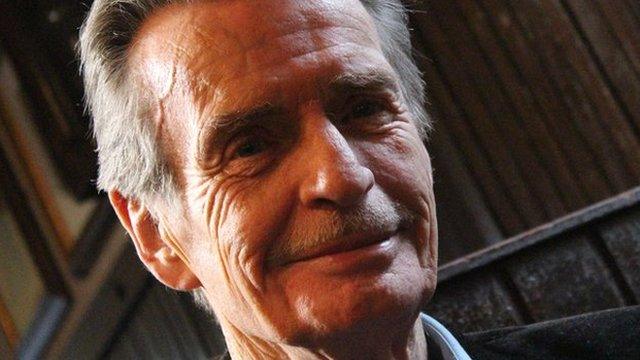
William McIlvanney influenced many of Scotland's top crime winners
In 1977 McIlvanney wrote Laidlaw, a novel about an "authentic" Glasgow detective.
Despite the book inspiring Ian Rankin to write the Rebus novels, McIlvanney did not cash in on his success.
He only wrote two other crime novels - The Papers Of Tony Veitch (1983) and Strange Loyalties (1991).
His brother Hugh said William's writing always represented the voice and experience of ordinary folk but also their "great intelligence" and "vivid expression".
He said: "If you were in a pub in Kilmarnock, evidence of intelligence or a capacity to use words properly actually meant more than being hard."
- Published23 February 2015
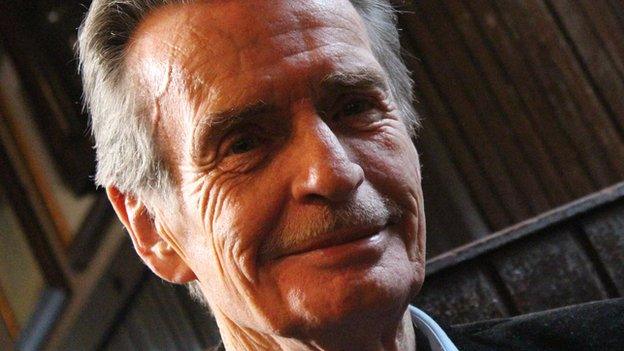
- Published25 January 2019
